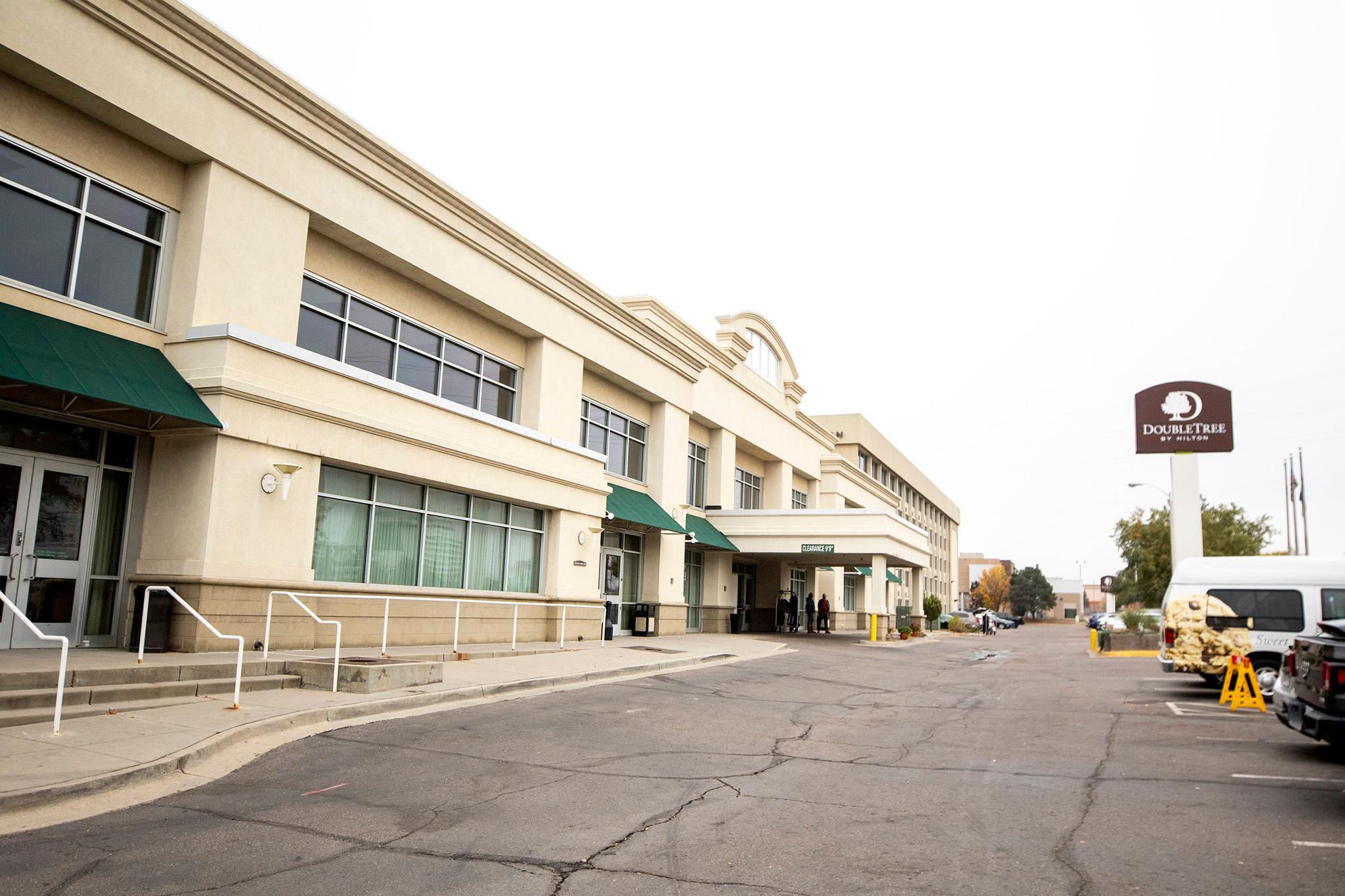City Council is considering two housing contracts that will support short- and long-term homelessness. One program will open up 300 rooms for non-congregate and cold weather shelter, while the other will provide rental assistance and other support services for 200 households moving from shelter to permanent housing.
City Council's Safety, Housing, Education and Homelessness committee unanimously voted to move both contracts out of committee Wednesday. All of City Council will vote on the programs in the next few weeks.
In one contract, the city plans to turn 4040 Quebec Street into shelter space, as part of Mayor Mike Johnston's goal to shelter 1,000 people by the end of 2023.
The building has 300 rooms and can support up to 450 beds. Denver would use the space for a combination of non-congregate shelter and emergency cold weather shelter space. 4040 Quebec Street also has laundry and kitchen facilities and conference rooms.
Denver would lease the building from 4040 Quebec LLC, a group made up of Rocky Mountain Communities and Urban Land Conservancy. The city would pay $83,333.33 per month in rent for up to 15 months, potentially totaling $1.25 million. The city would also get the chance to fully purchase the property in the future for $43 million. Rent the city previously paid would go toward the purchase.
Lisa Lumley, Director of Real Estate for the city, said the Department of Housing Stability (HOST) is waiting for an approximate $24.5 million state grant to come through before moving toward purchasing the building. The grant would fund a navigation center at the site, which would provide case management and other walk-up support services.
Cole Chandler, Johnston's Senior Advisor for Homelessness Resolution, said the Mayor's encampment response will drive who gets into the shelter. Under Johnston's program, certain encampments get targeted for "permanent closure," which comes with shelter and housing offers for residents.
"We're working on a more in camera by encampment response model," he said. "We are actively monitoring candidates all across the city, taking in inputs from 311, taking in inputs from public health assessments, and determining based upon back end resources, where we choose to go in terms of which encampments we'll be resolving through housing and shelter."
The other contract will support 200 households moving from shelter to longer term housing.
The $4 million contract is funded through the voter-approved homelessness resolution fund, and will be administered by the Salvation Army. The contract runs from this month through December of 2024.
The rapid rehousing program will provide rental and moving assistance along with case management and other help like utility assistance for families for up to two years. People will move into market-rate units with the program's assistance.
"It's the least expensive permanent housing intervention that we have," said Midori Higa, Director of Homelessness Resolution Programs for HOST. "The purpose of this program is to increase housing outcomes for people who have experienced unsheltered homelessness."
Higa said the program is new for the city and will help open up shelter space while moving people into long-term stable housing. Many people who are housing insecure are employed; Higa said the idea of the program is that households' rental assistance would likely decrease over time as families gain stability and access to other social service programs like disability support or social security.
The program focuses on people experiencing unsheltered homelessness. Higa said many of the people who enter the program will come from non-congregate shelters as part of the city's encampment response.













